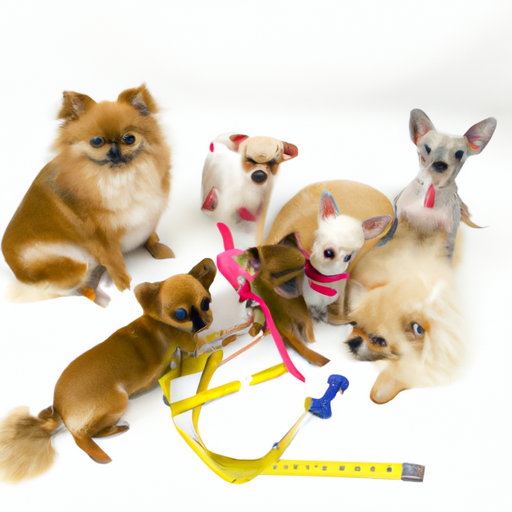Introduction
You, as a caregiver, have a lot to balance. Your schedule is packed with responsibilities, and you might find yourself wondering if there’s room for a little furry friend. You want a dog, but not just any dog. You’re looking for a small breed, a compact companion to brighten your days and fill your home with love. Well, you’re in luck! There are many small dog breeds out there, each with its own personality and needs. Let’s delve into the world of small dogs and find the perfect match for you.
A Look At Popular Small Dog Breeds
Here are some of the most popular small dog breeds that are sure to keep their compact size throughout their lives:
- Chihuahua: Known as the smallest breed in the world, Chihuahuas are known for their spunk and loyalty.
- Pomeranian: These fluffy little balls of energy are as playful as they are petite.
- Shih Tzu: Bred to be lap dogs, Shih Tzus are content with a life of leisure and love.
- Yorkshire Terrier: These little terriers are adventurous and always ready for fun.
- Dachshund: These unique dogs, with their long bodies and short legs, are as adorable as they are stubborn.
Each breed has its own unique traits, so it’s important to consider these when deciding which small dog is the best fit for you.
What to Consider When Choosing a Small Dog Breed
When choosing a small dog breed, there are several factors you should consider:
- Temperament: Some small dogs are calm and docile, while others are full of energy. Consider your lifestyle and how a dog’s personality will fit into it.
- Grooming needs: Some breeds, like the Pomeranian and Shih Tzu, require regular grooming to keep their coats healthy and free of mats.
- Health considerations: All breeds can have health issues, but some are more prone to certain conditions than others. Research the health history of your selected breed to be prepared for potential future health concerns.
Here’s a simple table to help you compare these factors among the popular small breeds:
| Breed | Temperament | Grooming needs | Common health issues |
|---|---|---|---|
| Chihuahua | Lively and devoted | Low | Dental issues |
| Pomeranian | Playful and intelligent | High | Dental issues, Luxating patella |
| Shih Tzu | Gentle and loyal | High | Eye problems, Hip dysplasia |
| Yorkshire Terrier | Bold and independent | Medium | Eye and skin problems |
| Dachshund | Stubborn and curious | Low | Back problems |
How to Care for Small Dog Breeds
Small dogs may be tiny, but they have big hearts and even bigger personalities. They require just as much love, care, and attention as larger breeds. Here are a few things to keep in mind:
- Small breeds often have faster metabolisms and can benefit from several smaller meals throughout the day.
- Training is important for dogs of all sizes. Small dogs can be just as stubborn and headstrong as larger ones.
- Socializing your small dog is key. Even though they’re little, they still need to learn how to interact with other dogs and people.
FAQ
Q: Are small breeds good for first-time dog owners?
A: Yes, many small breeds are suitable for first-time owners. However, it’s important to research the breed’s personality and needs before deciding.
Q: How long do small dog breeds typically live?
A: Small dog breeds often have longer lifespans compared to larger breeds, with many living into their mid to late teens.
Q: Are small dogs good with kids?
A: It depends on the breed and the individual dog. Some small breeds are great with kids, while others may be less tolerant. Always supervise interactions between kids and dogs.
Q: Can small dogs live in apartments?
A: Yes, many small breeds adapt well to apartment living. However, they still need regular exercise and mental stimulation.
So, as a caregiver, whether you’re looking for a playful companion to keep you active or a docile lap dog to provide comfort, there’s a small dog breed out there that’s perfect for you. All you need to do is a little research and a lot of love.



